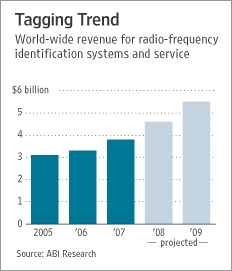Video demo shows you how
Using inexpensive off-the-shelf components, an information security expert has built a mobile platform that can clone large numbers of the unique electronic identifiers used in US passport cards and next generation drivers licenses.
The $250 proof-of-concept device – which researcher Chris Paget built in his spare time – operates out of his vehicle and contains everything needed to sniff and then clone RFID, or radio frequency identification, tags. During a recent 20-minute drive in downtown San Francisco, it successfully copied the RFID tags of two passport cards without the knowledge of their owners.
Paget’s contraption builds off the work of researchers at RSA and the University of Washington, which last year found weaknesses in US passport cards and so-called EDLs, or enhanced drivers’ licenses. So far, about 750,000 people have applied for the passport cards, which are credit card-sized alternatives to passports for travel between the US and Mexico, Canada, the Caribbean, and Bermuda. EDLs are currently offered by Washington and New York states.
“It’s one thing to say that something can be done, it’s another thing completely to actually do it,” Paget said in explaining why he built the device. “It’s mainly to defeat the argument that you can’t do it in the real world, that there’s no real-world attack here, that it’s all theoretical.”
Read morePassport RFIDs cloned wholesale by $250 eBay auction spree


